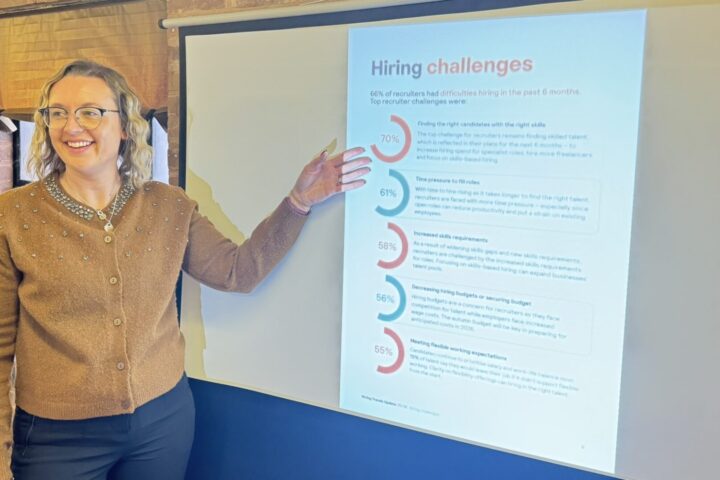According to the latest REC JobsOutlook research, employers’ confidence in making investment and hiring decisions fell following the autumn Budget, but showed signs of recovery by December.
While confidence took a hit due to post-Budget concerns, it returned to positive territory by the end of the year, suggesting that some of the more pessimistic economic forecasts for 2025 may be underestimating the potential for recovery.
The survey, which included responses from 634 UK employers, found that while perception of the UK economy remained weak, it improved by three points to a net balance of -25 compared to -28 in the three months to October.
This continued a trend of gradual improvement that began in early 2023.
The perception of the economy was significantly better in December, at net -12, compared to the sharp drop seen in November, when it fell to net -39 in response to the Budget.
For the past 18 months, employers have generally been growing more positive about their own business outlook.
However, this optimism took a hit in late summer amid gloomy economic predictions and was further affected by the Budget.
Despite this, the decline in confidence appeared to be marginal and potentially recoverable.
Employers’ confidence in making investment and hiring decisions dropped three points this quarter, from net -2 to net -5.
This was a sharp contrast to the near-term peak of net +16 recorded in the three months to June 2024.
The decline was largely driven by concerns following the Budget in November, when confidence fell to net -17.
However, sentiment rebounded in December, with the measure rising back to positive territory at net +2.
Medium-sized companies, those employing between 50 and 249 people, were significantly more positive about their hiring intentions for both permanent and temporary roles compared to smaller and larger firms.
Employers in London and the Midlands showed stronger short-term hiring intentions, particularly for temporary positions.
In the Midlands, confidence in medium-term permanent hiring was notably high.
Meanwhile, in the private sector, medium-term demand for temporary workers remained significantly stronger than in the public sector.
Despite the resilience of many firms, the impact of tax increases introduced in the Autumn Budget is evident in changing hiring plans.
Around 14% of employers reported plans to reduce their permanent headcount in the next three months, up from 5% in the three months to October.
This shift was largely driven by a sharp rise in workforce reduction intentions in November and December, following the Budget.
In the medium term, permanent hiring plans also declined, with the proportion of employers planning to cut staff increasing to 15% in November and 18% in December, compared to just 4% in October.
Short-term permanent hiring intentions weakened but continued to indicate growth in workforces, reaching a net balance of +5.
However, this was seven points lower than in the three months to October.
Medium-term permanent hiring intentions similarly fell by eight points, landing at net +4 compared to the previous quarter.
The balance of sentiment towards short-term use of temporary and contract workers also turned slightly negative, declining from net +5 in the three months to October to net -2 in the three months to December.
While the balance of sentiment for medium-term use of temporary and contract workers also fell, it remained marginally positive at net +1.
Neil Carberry, chief executive of REC, said: “There can be no doubt that the Budget created headwinds for companies all over the country.
“But these data show that the economy is bigger than government policy, with employers’ confidence holding steady as we head into 2025.
“The growth re-set that the Chancellor has been talking about is vital to keeping up momentum now.
“In 2025, the government needs to be a source of tailwinds for firms as they speed for growth.
“A balanced view of today’s report shows there is opportunity out there for businesses and candidates alike, but more to do to grasp it.
“Making sure that the industrial strategy tackles long-term challenges like infrastructure, skills and taxation with more of a can-do attitude will be vital.”
Carberry added: “The Autumn Budget’s rise in National Insurance has clearly had an impact on hiring intentions, with firms affected by the reduction in the threshold particularly hard hit.
“The increase in employers planning to reduce headcount is a concern, but still small at this stage.
“The UK’s labour market is among the most competitive globally, and it is only becoming more challenging.
“As recruitment specialists, we see that businesses must adapt their approach to make the most of their talent and the new technologies at their disposal.
“Hiring isn’t just a task –it should be a strategic priority. Too many companies haven’t yet grasped that.”

















